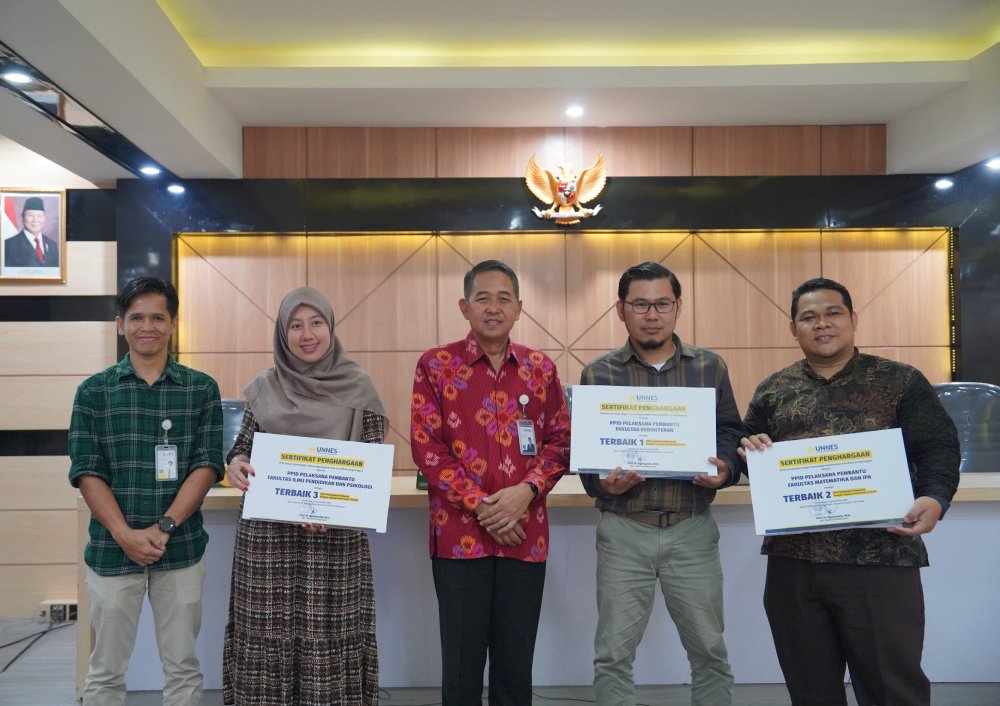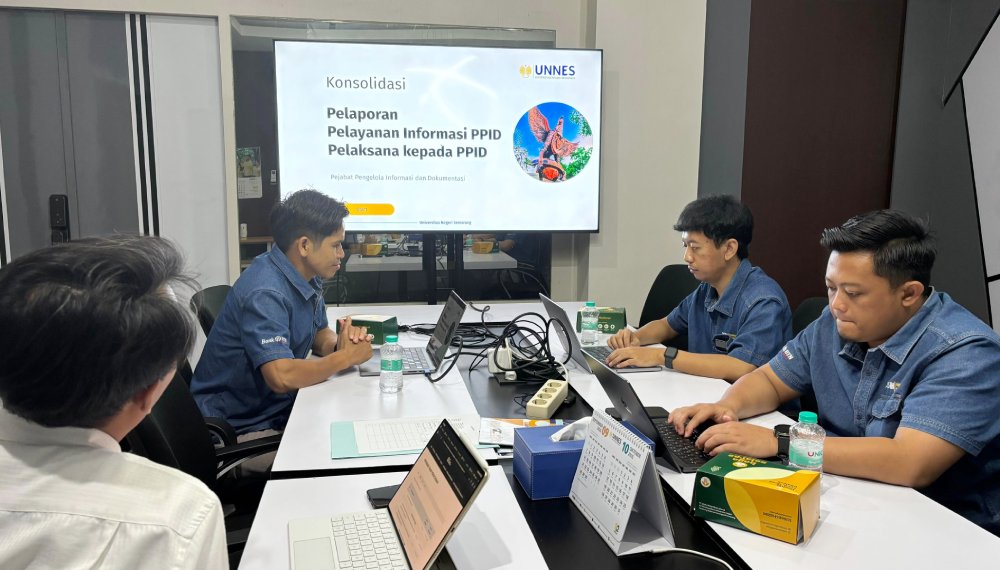Universitas Negeri Semarang (UNNES) continues to demonstrate its commitment to the development of legal science and its contribution to society. This time, the Faculty of Law at UNNES has successfully organized the International Conference on Law Conservation and Sustainability (IC-CONSIST) 2024. The conference, themed “Law and Society: Problems and Challenges in the Digital Era,” took place on July 30-31, 2024, in room K3.307 of the UNNES Faculty of Law and virtually via Zoom.
This year marks the second iteration of the International Conference, which serves as a significant platform for international discussion and collaboration. The conference gathered academics, legal practitioners, and participants from various countries.
IC-CONSIST 2024 covered a range of topics pertinent to the advancements in digital technology and its impact on law and society. Discussions included digital technology and human rights, digital technology and gender equality, digital technology and law enforcement, digital technology and democracy, digital technology and social welfare, digital technology and conservation, and the intersection between Indonesian society, digital technology, and Sharia law.
The conference commenced with a welcome address from Prof. Dr. Ali Masyhar, Dean of the Faculty of Law at UNNES, who highlighted the crucial role of law in addressing challenges in the digital era. Prof. Ali Masyhar also emphasized that this conference is an ideal platform for sharing knowledge and seeking collective solutions to various problems faced in the digital age. The event was then officially opened by Prof. Dr. Nur Qudus, M.T., IPM., Vice-Rector IV for Cooperation, Business, & International Relations.
The first day of IC-CONSIST 2024 featured several renowned speakers from both domestic and international institutions. Dr. Indah Sri Utari, S.H., M.Hum., presented on legal ethics in artificial intelligence, “Artificial Intelligence and Legal Ethics: Building a Framework for Responsible AI.” This Faculty of Law lecturer at UNNES delved into how AI can be ethically employed in the legal field and the importance of constructing a responsible framework for AI usage.
Prof. Dr. R Benny Riyanto, M.Hum. from UNNES, shared his insights on “Integrating Information Technology in Developing Civil Law Procedure: Challenges and Opportunities.” As a lecturer and Head of the Research and Community Service Institute at UNNES, he outlined the challenges and opportunities in incorporating information technology into civil law procedures and the positive impacts that technology can have on the legal system.
Dr. Trounsel Joubert from Tilburg University, Netherlands, discussed methods to mitigate the negative impacts of Generative AI (GenAI) on indigenous knowledge. His presentation, “Mitigating GenAI’s Negative Impacts in Indigenous Knowledge from International and Vietnamese Laws Perspective,” was highly relevant given the rapid development of AI technology and its implications for traditional knowledge and culture.
Assoc. Prof. Eric Alan Jones from Northern Illinois University, USA, underscored the importance of international collaboration among law schools in the digital era with the topic “Strengthening International Collaboration Among Law Schools in the Digital Era: Enhancing Global Legal Education through Digital Innovation.” He emphasized how digital innovation can enhance global legal education and strengthen cooperation between legal education institutions.
Prof. Madya Roziya Binti Abu from Universiti Teknologi Mara, Malaysia, presented on “Digital Citizenship, Understanding Digital Landscape Dynamics.” She discussed the importance of understanding the dynamics of the digital landscape and how digital citizenship can influence everyday life.
On the second day of IC-CONSIST 2024, participants from various countries presented their research findings and engaged in discussions. Participants have until September 30, 2024, after the conference, to submit their full papers. Besides providing opportunities for participants to network and forge new collaborations with colleagues from different countries, the conference also facilitated engaging discussions during its proceedings.
Another notable aspect of the conference is the opportunity for selected papers to be published in Scopus-indexed journals such as Lex Scientia Law Review (Q2), Journal of Indonesian Legal Studies (Q1), Journal of Law and Legal Reform, as well as SINTA-indexed journals from the UNNES Faculty of Law and other publishing partners.
These publishing partners include Jambura Law Review from Universitas Negeri Gorontalo, Legality from Universitas Muhammadiyah Malang, Jambe Law Journal from Universitas Jambi, Volksgeist from UIN Prof. KH. Saifuddin Zuhri Purwokerto, Jurisdictie, and De Jure from UIN Maulana Malik Ibrahim Malang. This opportunity adds value for researchers to publish their scientific works in prestigious journals.
With the conclusion of IC-CONSIST 2024, it is hoped that this conference will become an annual event that significantly contributes to the development of legal science.
The post Addressing Legal Challenges in the Digital Era: UNNES Faculty of Law Hosts IC-CONSIST 2024 appeared first on Universitas Negeri Semarang.


